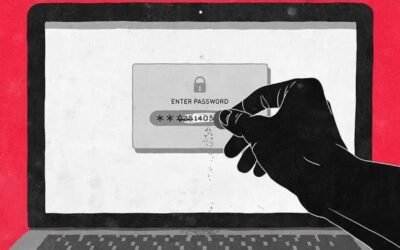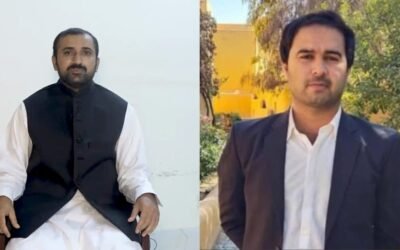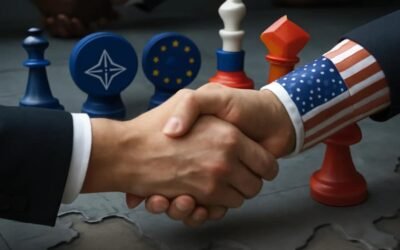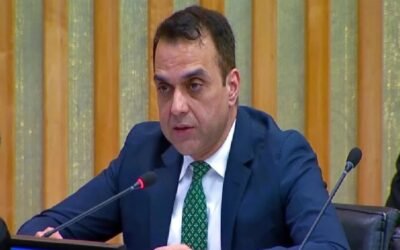Information warfare is a situation where various groups, including governments, political actors, or organisations, spread false or misleading information to confuse people, influence the overall opinion, or divide society. This also involves propagating fake news, propaganda, doctored videos, and emotionally charged content aimed at influencing the thoughts or beliefs of people.
Ordinary people are usually the primary targets nowadays since they use social media daily, where this kind of content is disseminated fast and effortlessly. It is more dangerous because many people share false information without knowing it. It is because of this that personal digital resilience is so crucial. It implies being able to identify false or malicious content, checking the origin of information before sharing it, and safeguarding your privacy online. Being conscious and cautious on the Internet will make people less likely to be deceived and used as a weapon in a bigger information war.
Knowing the threats
There are numerous techniques used on the internet to disseminate misleading or wrong information. These are fake news (entirely false information), deepfakes (very realistic fake videos), clickbait headlines (created to generate clicks rather than truth), and emotive content that makes the reader or viewer angry or fearful rather than rational. This kind of information is usually made to be viral and to manipulate the minds of people without their knowledge. These are the tools applied in information warfare to befuddle and undermine confidence in facts.
Algorithms target people online and present them with content depending on their interests, and can reinforce the beliefs they have. Psychological profiling is also implemented on platforms, which consists of analysing likes, clicks, and behaviour to deliver personalised messages to shape the opinion. This forms the echo chambers where individuals only view ideas that are in line with their thinking and hardly ever come across other opinions. Such methods facilitate the manipulation of public opinion and cause people to have more difficulties in realising the truth.
Useful Advice to Develop Personal Digital Resistance
Pause before You Post
Among the simplest means of combating misinformation is to think before posting anything on the internet. Ask Yourself: Is this so? What is its origin? On numerous occasions, fake or emotional information is shared at high rates since individuals share it without verifying it. Misleading posts in Pakistan, particularly on WhatsApp and Facebook, frequently become viral during elections or national emergencies. The second thought, or contemplation, before sharing prevents the proliferation of negative stories.
Check the Source
Not every social media page or webpage can be trusted. When you see or hear some news, first verify whether it is from a reliable and independent source. If not, then you know what to do with that information: discard it. Fact-checking websites such as Snopes or PolitiFact Check are available globally, and in the case of Pakistan-specific news, such sites as Soch Fact Check are also useful. It is possible to determine whether the source is credible by checking the page of a site or performing a brief search.
Enhance Privacy Controls
By securing your online privacy, you also secure yourself against propaganda and scams. Enrol in the two-factor authentication of your accounts, and check your privacy settings of such apps as Facebook, Instagram, and TikTok. In Pakistan, most of the users do not realise that their information may be used to manipulate politics or even cyberbully others. Privacy is more secure, and it is difficult for bad actors to monitor or affect you.
Clean Up Your Feed
What you observe on the internet influences your thoughts. Do not live in an information bubble by adhering to various forms of news media, such as international news and local news. In case you see pages that always post fake or biased data, unfollow them. In Pakistan, political fan pages tend to share inaccurate information to attack opponents. A balanced feed will enable you to get the bigger picture, view things objectively without blindly following a certain agenda; therefore, you are less likely to be manipulated.
Media Literacy Practice
Media literacy is the ability to read between the lines. Train to identify the manipulative language, edited photos, or even videos out of context. Learn by watching tutorials or even by taking online courses that are free (YouTube or Coursera). In Pakistan, the local training to make people smarter digital users is provided by organisations such as IRADA and Media Matters for Democracy. Media literacy can keep you safe not only against fake news but also against getting lured into the divisive content on the Internet.
Digital Resilience
Creation of healthy digital habits is a significant component of creating personal digital resilience in the current information-rich environment. Excessive time spent online may result in mental exhaustion, and it will be more difficult to think critically or identify fake information. Limiting the time spent on the screen and taking frequent social media breaks will clean the mind and minimise emotional responses to information. Meeting with friends or relatives in person will give the chance to have a wider discussion and prevent the tunnel vision that is sometimes promoted by online echo chambers. These are straightforward practices that will enhance your power to remain composed, think rationally, and avoid manipulation in the digital environment.
Conclusion
In an era of fake news that is easily and silently passed on, it is critical to be a responsible online citizen. Each person, particularly a country like Pakistan, where internet avenues are being exploited more and more as a means of swaying opinion and dividing people, needs to learn how to defend himself/herself. Basic, regular habits such as checking the news, privacy settings, and time on the screen can go a long way. Remaining aware and thinking critically, one person is stronger against manipulation by digital means. The new information battlefield is such that personal awareness is not only self-defence, but it is a strength.




























